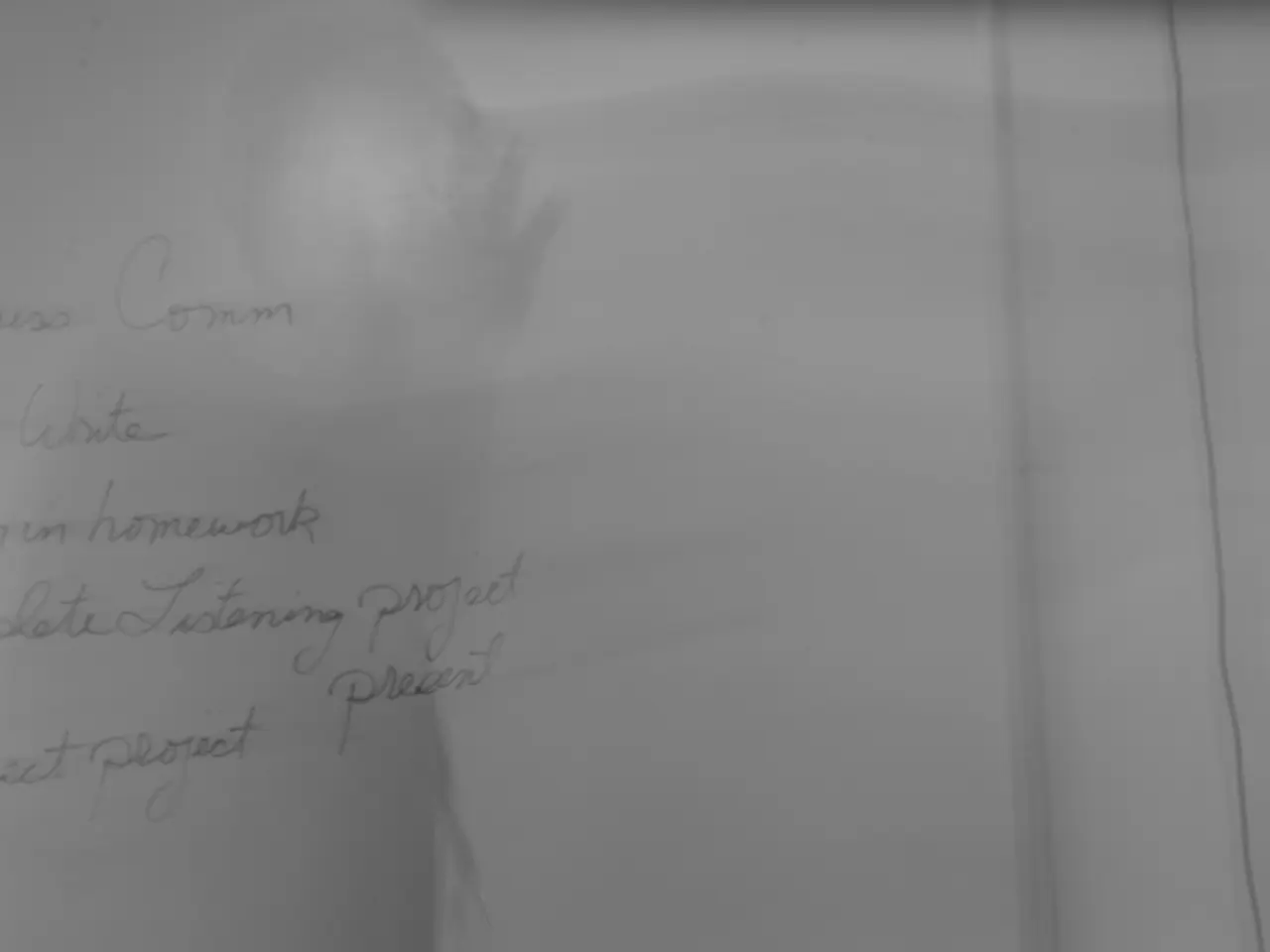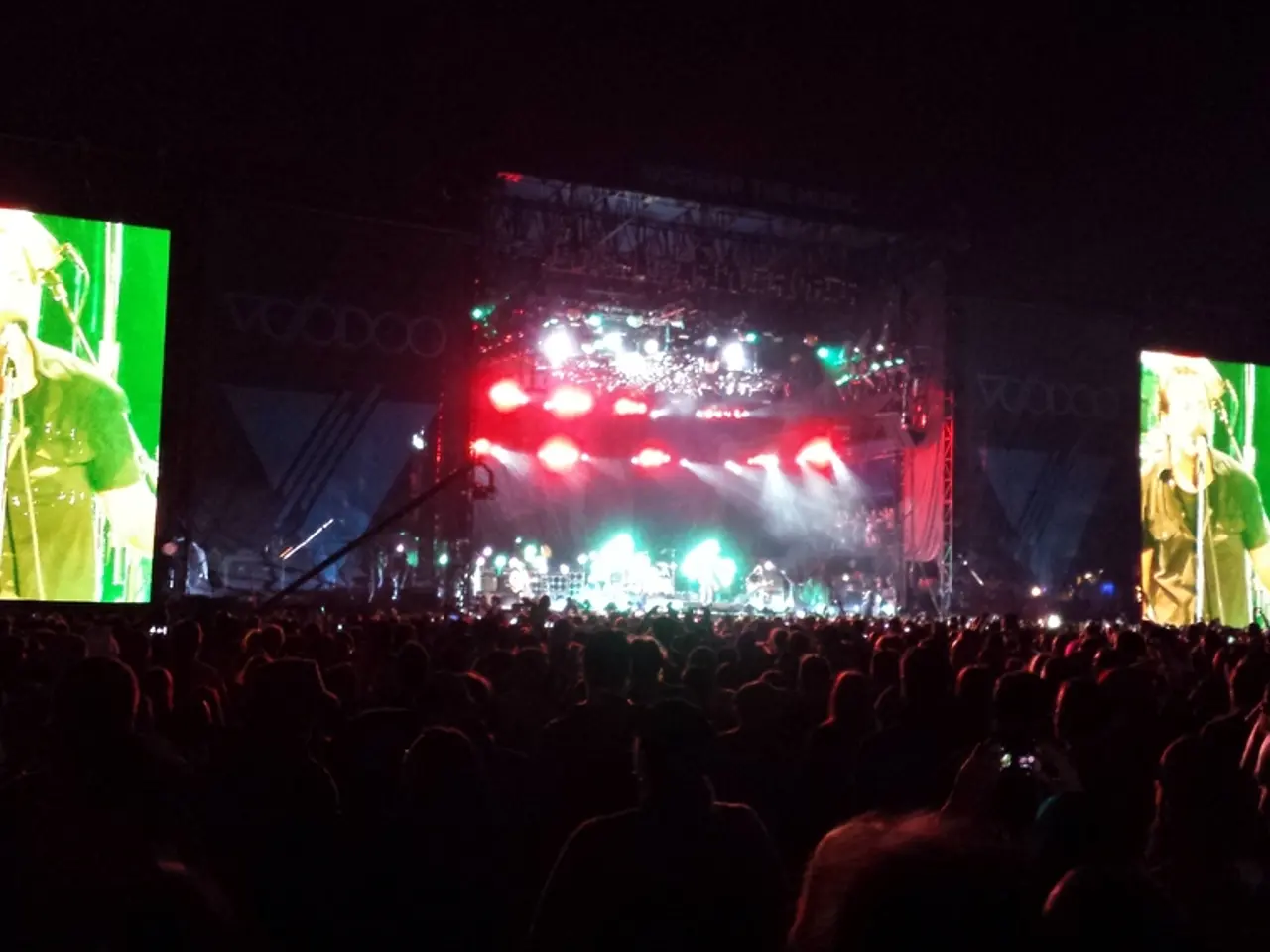Germany Faces Criticism for late action - yet maintaining a sense of moral integrity
In the midst of the ongoing conflict in Ukraine, the international community has been taking measures to respond to Russia's actions. One such area of focus has been the energy sector, particularly the import and export of liquefied natural gas (LNG).
As of mid-2025, the EU has not fully sanctioned Russian LNG exports but has imposed specific restrictions. Notably, the ban on the transshipment of Russian LNG through EU ports has been in effect since March 2025. This ban prevents the transfer of Russian LNG between vessels in EU waters and blocks the use of EU LNG terminals for re-exporting Russian LNG to other markets.
However, the EU still imports Russian LNG directly, albeit in a phased manner. The complete ban on Russian gas imports, including LNG, is scheduled to be phased in gradually and will only be fully effective by the end of 2027. The European Commission's proposed regulation aims to end Russian gas imports in stages: banning new contracts after mid-2025, ending short-term contract imports by mid-2026 (with some exceptions), and terminating all imports by 2027.
The gradual approach is due to several reasons. One is the current tightness in gas markets, and the need for Europe to secure alternative energy supplies to avoid shortages and high prices. Another reason is the potential legal risks for European companies with long-term contracts. These companies face potential lawsuits due to contract breaches, and the EU is analyzing contractual information and considering possible compensation mechanisms to mitigate these risks.
Meanwhile, the war in Ukraine continues, causing despair, fear, and sleepless nights for many Ukrainians. The Ukrainian air defense is struggling to handle the sheer number of attacks, resulting in civilian casualties and infrastructure damage. The ongoing bombardment, which is not by the Germans as they have not yet received promised defense systems, has led to a story where a Russian mistakenly believes it to be German escalation.
The situation is further complicated by the fact that Western supporters are having difficulty supplying defense missiles to Ukraine. This has led to a call for Chancellor Friedrich Merz to convince partners to deliver defense systems to Ukraine. However, attention for the war in Ukraine seems to be waning, with the German government yet to impose sanctions on Russian LNG, despite calls for action.
A German company is expected to receive at least 2 billion euros worth of LNG from Russia in 2025 alone, raising questions about Europe's and especially Germany's responsibility in supporting Ukraine. As the conflict continues, the international community will need to find a way to balance energy security, legal considerations, and the urgent need for support for Ukraine.
References: [1] European Commission. (2025). Proposed Regulation on the Phased Cessation of Russian Gas Imports. [2] Reuters. (2025). EU Delays Full Ban on Russian LNG Imports Due to Legal Risks. [3] Bloomberg. (2025). Russia's Yamal LNG Struggles with EU Sanctions. [4] Financial Times. (2025). Europe's Gas Markets Face Tightness Amidst Russian Sanctions. [5] BBC News. (2025). The Ongoing Conflict in Ukraine: A Story of Misunderstanding and Despair.
The European Commission's proposed regulation aims to end Russian gas imports, including LNG, in stages, with the complete ban scheduled for the end of 2027. Despite this, a German company is expected to receive at least 2 billion euros worth of LNG from Russia in 2025 alone, raising questions about Europe's and especially Germany's responsibility in supporting Ukraine, as the war-and-conflicts continue and the international community grapples with policy-and-legislation, legal considerations, and politics surrounding energy security.
Meanwhile, general-news outlets have reported on the ongoing bombardment in Ukraine, causing civilian casualties and infrastructure damage, and the difficulties Western supporters face in supplying defense missiles to Ukraine. This situation, further complicated by the EU's phased approach to banning Russian LNG imports due to legal risks, has led to calls for Chancellor Friedrich Merz to convince partners to deliver defense systems to Ukraine, as attention for the war in Ukraine seems to be waning and the German government yet to impose sanctions on Russian LNG.







